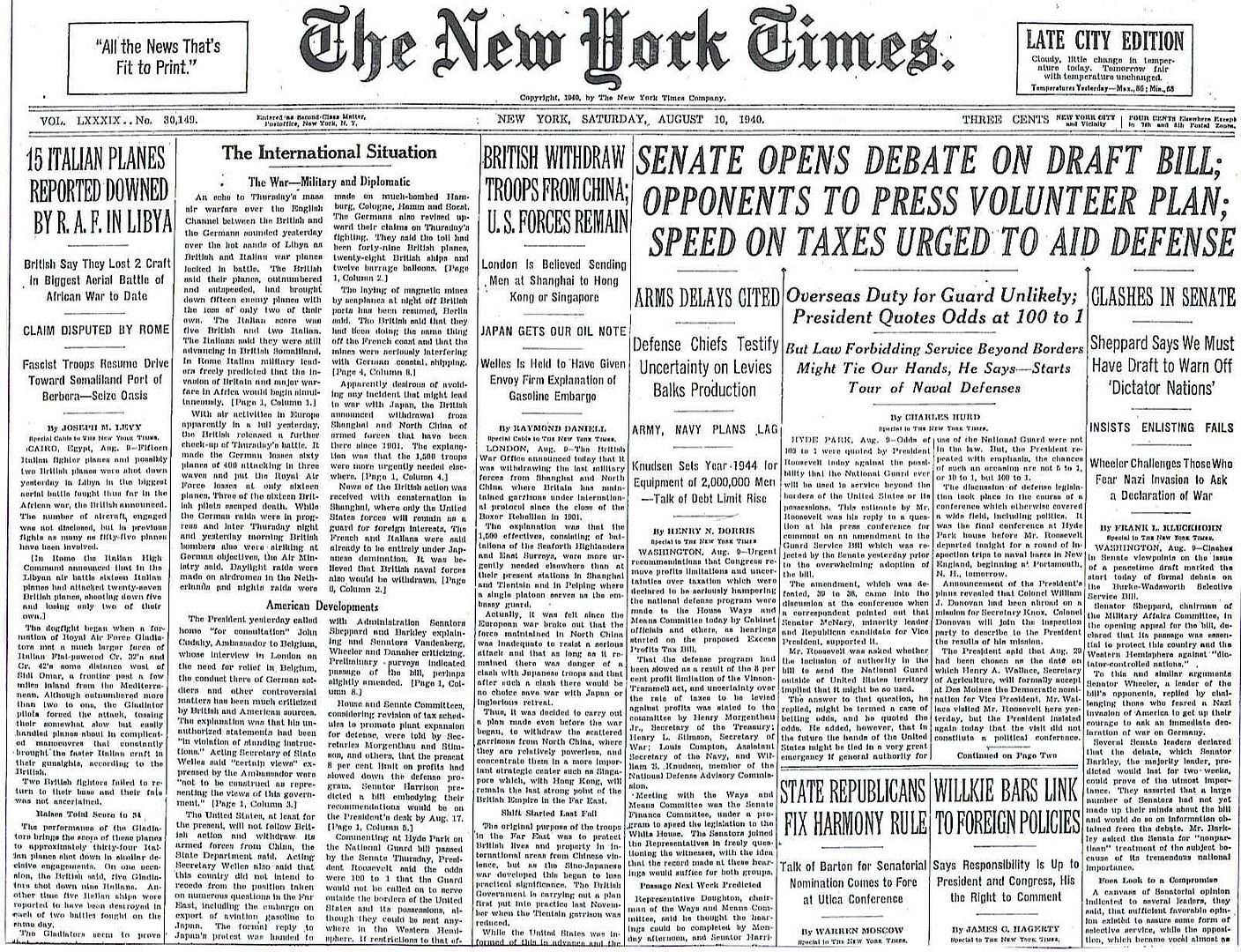
Posted on 08/10/2010 5:26:15 AM PDT by Homer_J_Simpson

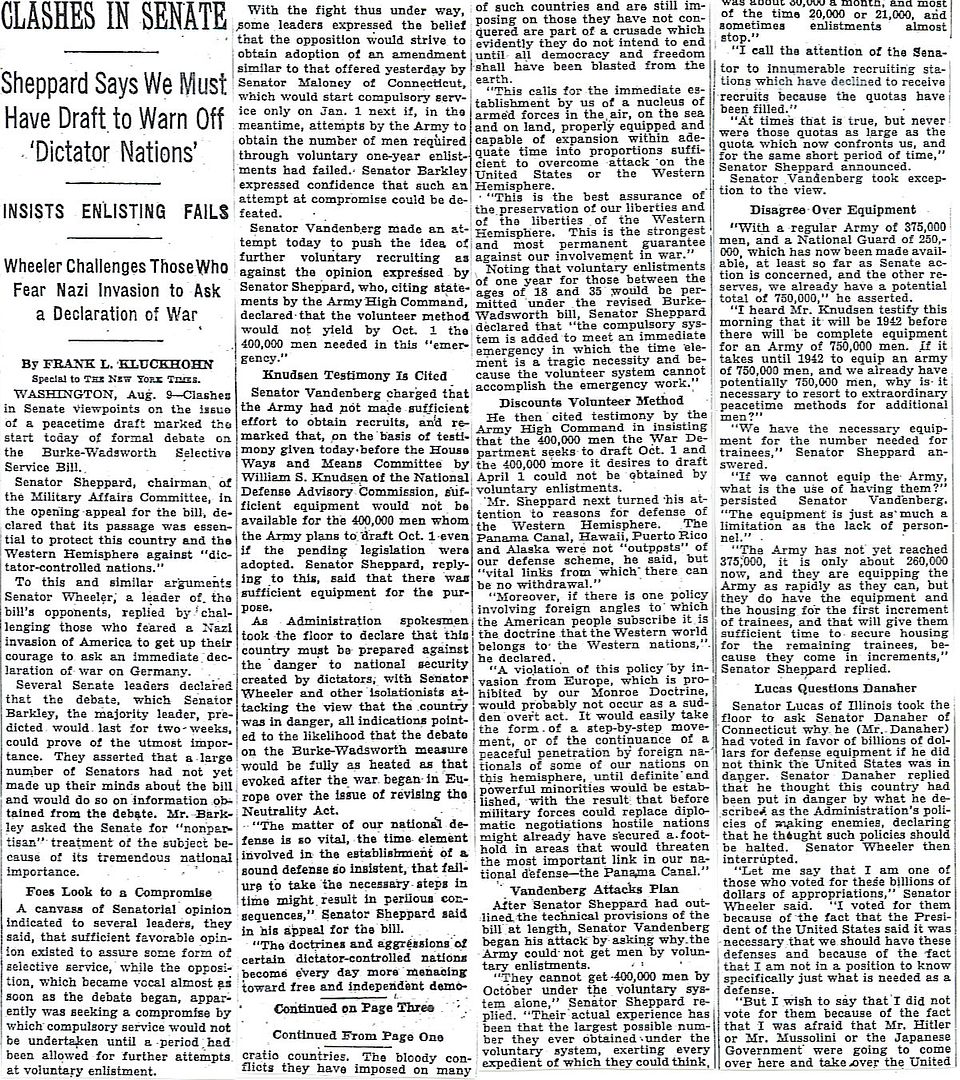
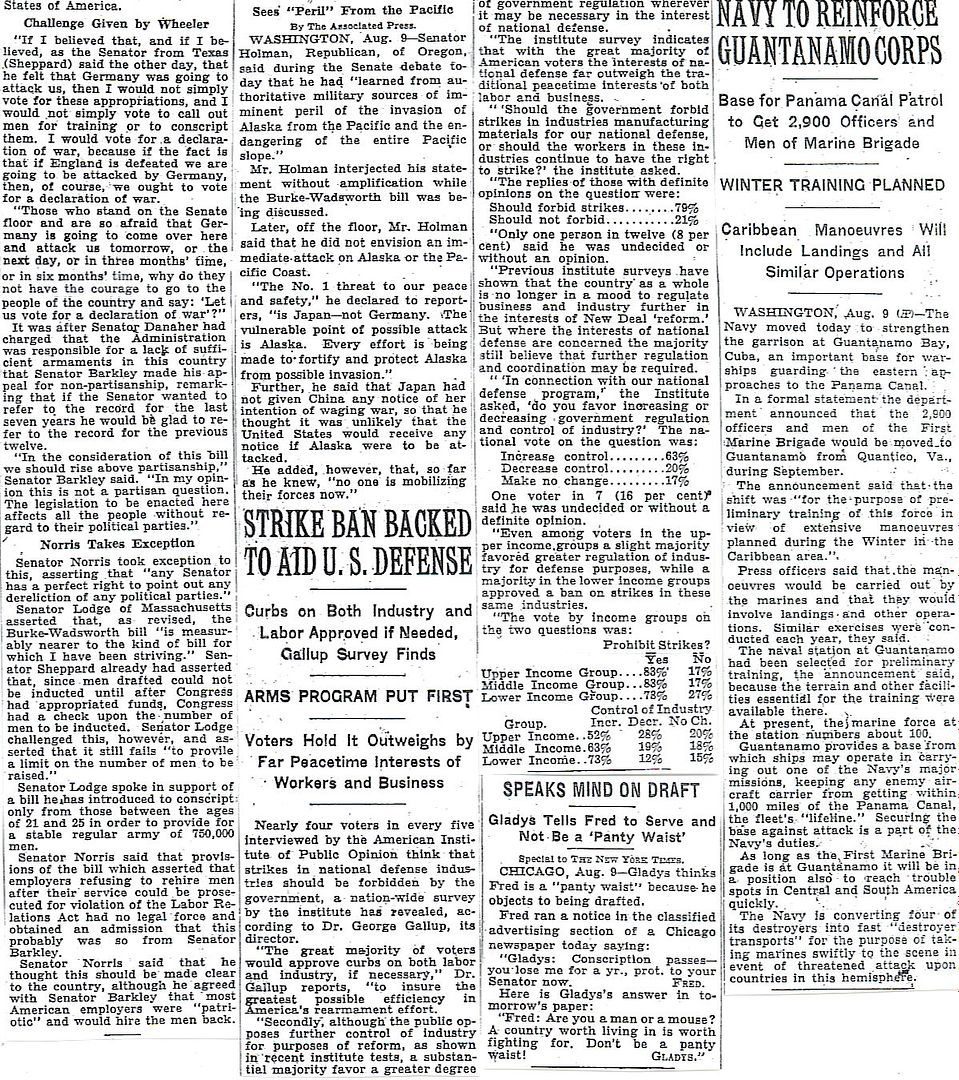
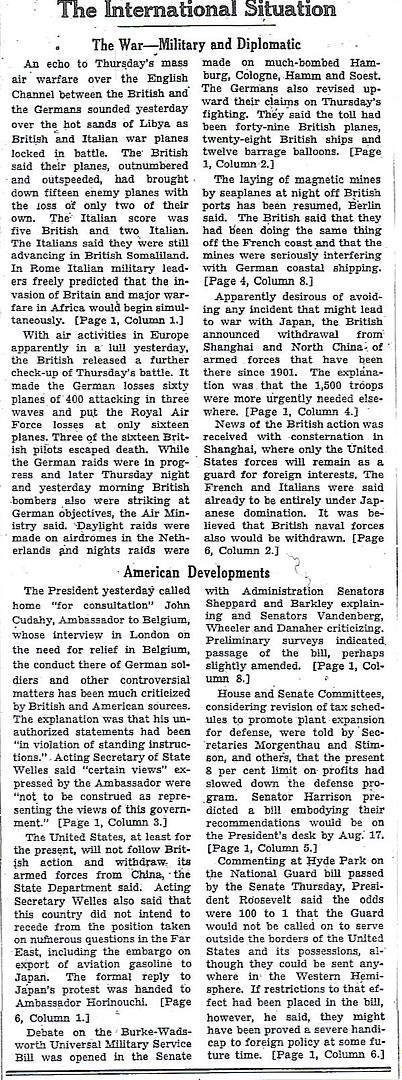
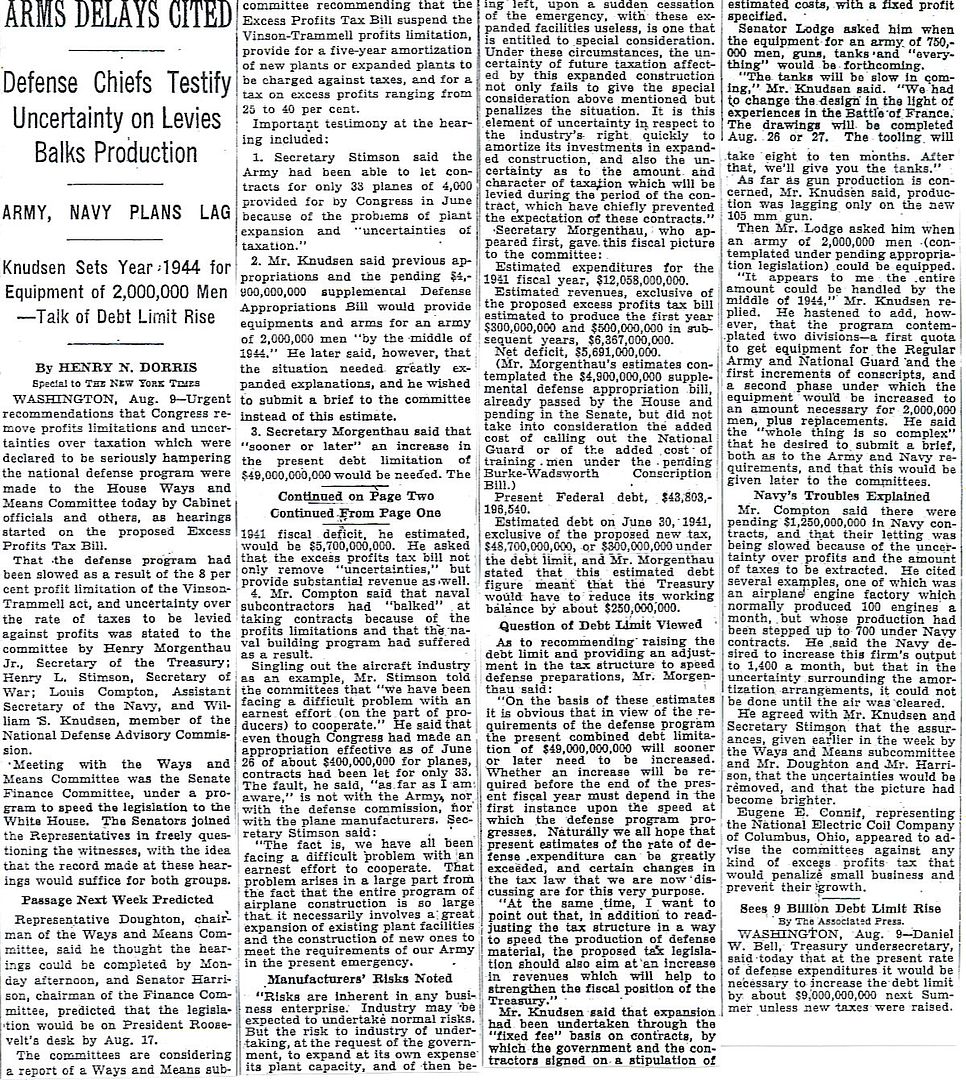
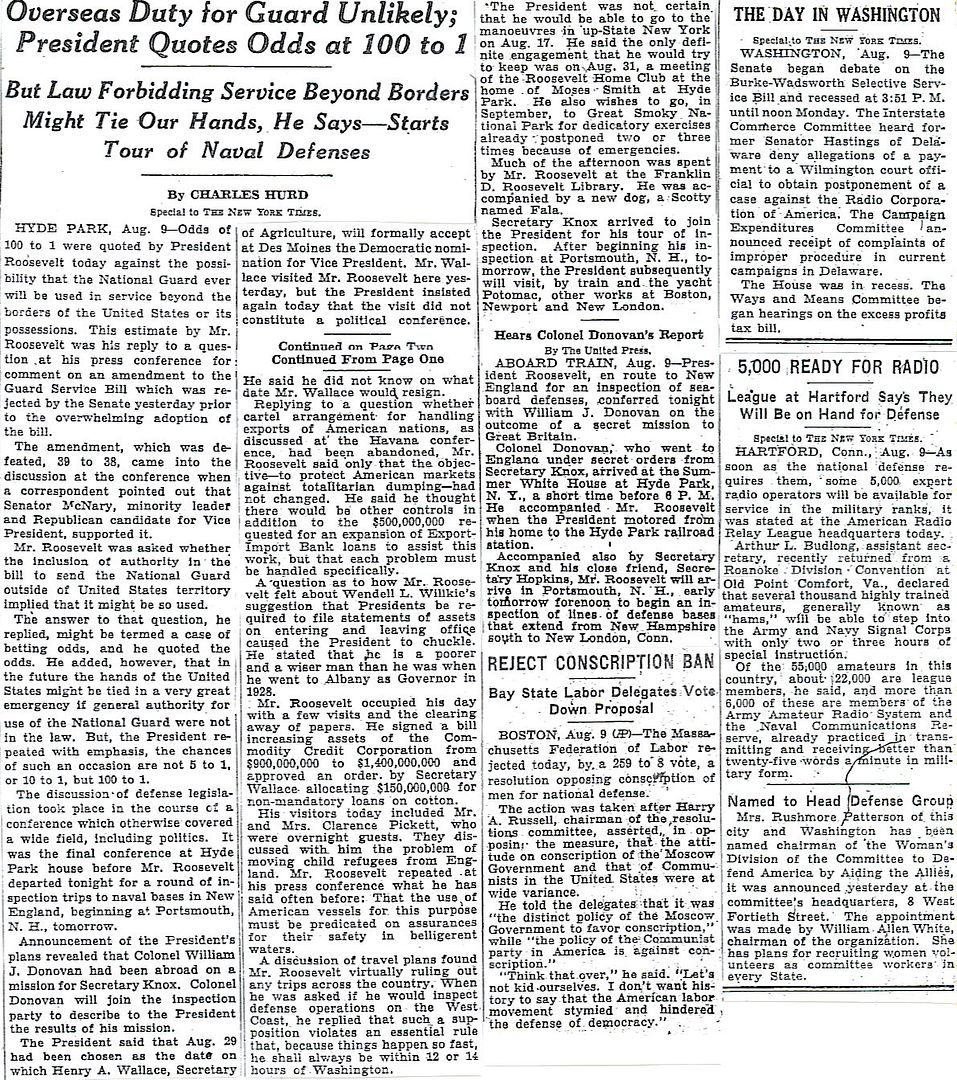
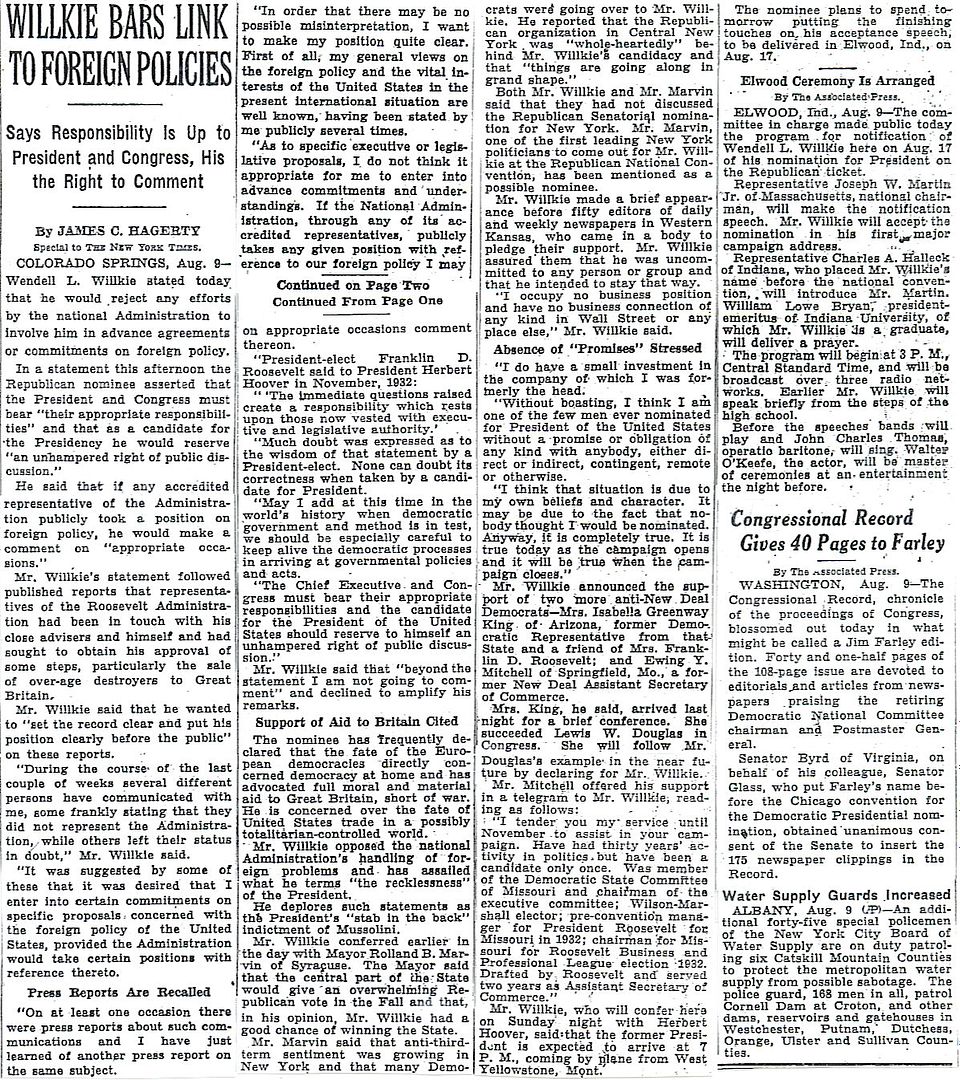
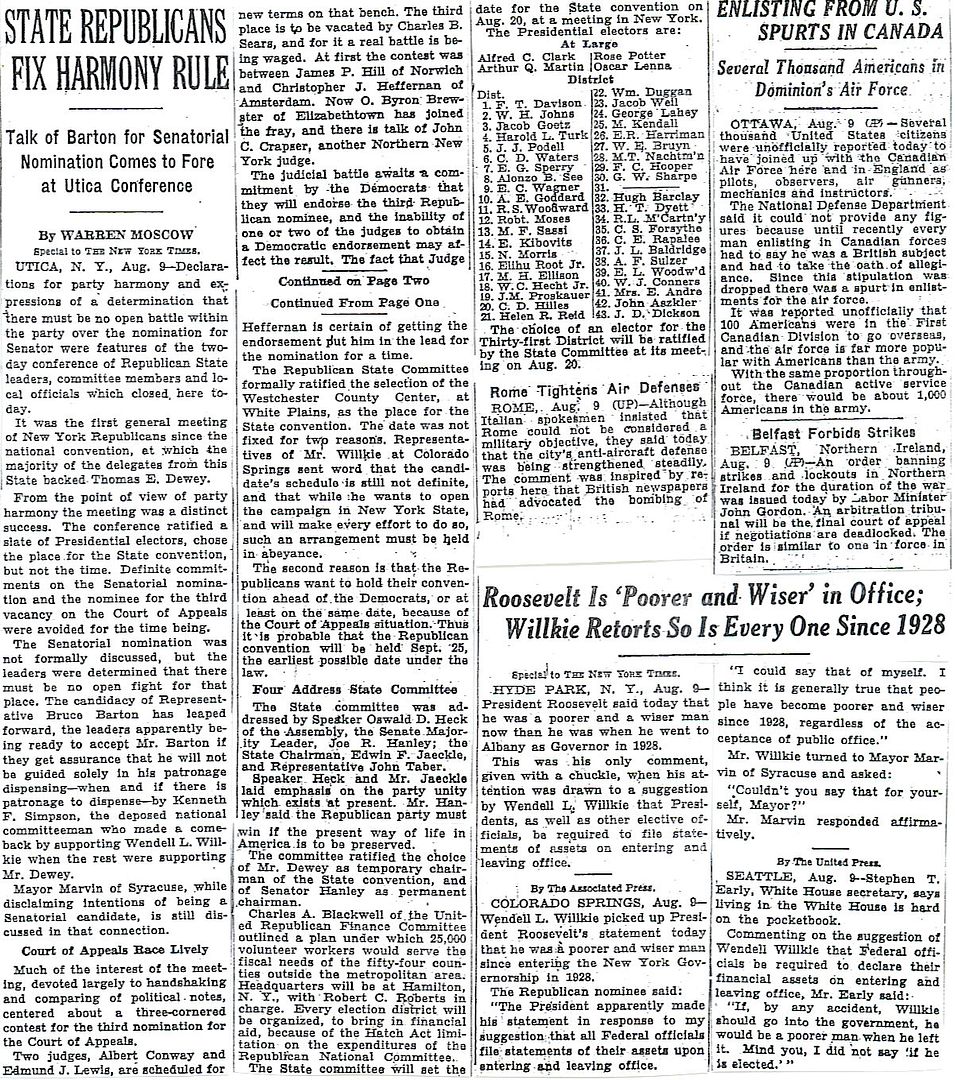
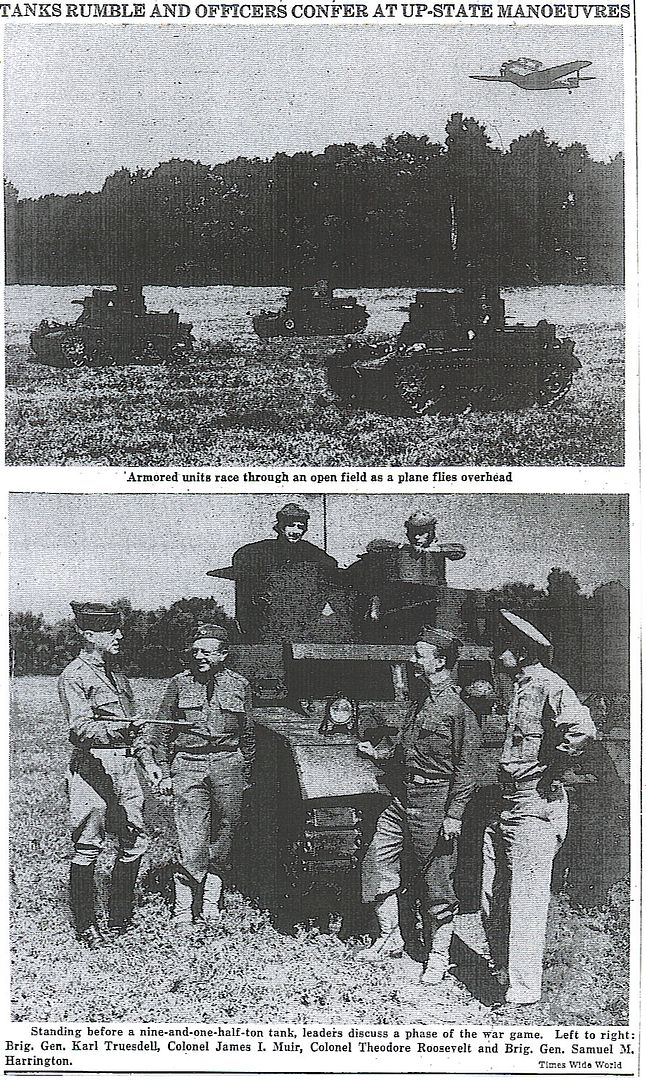
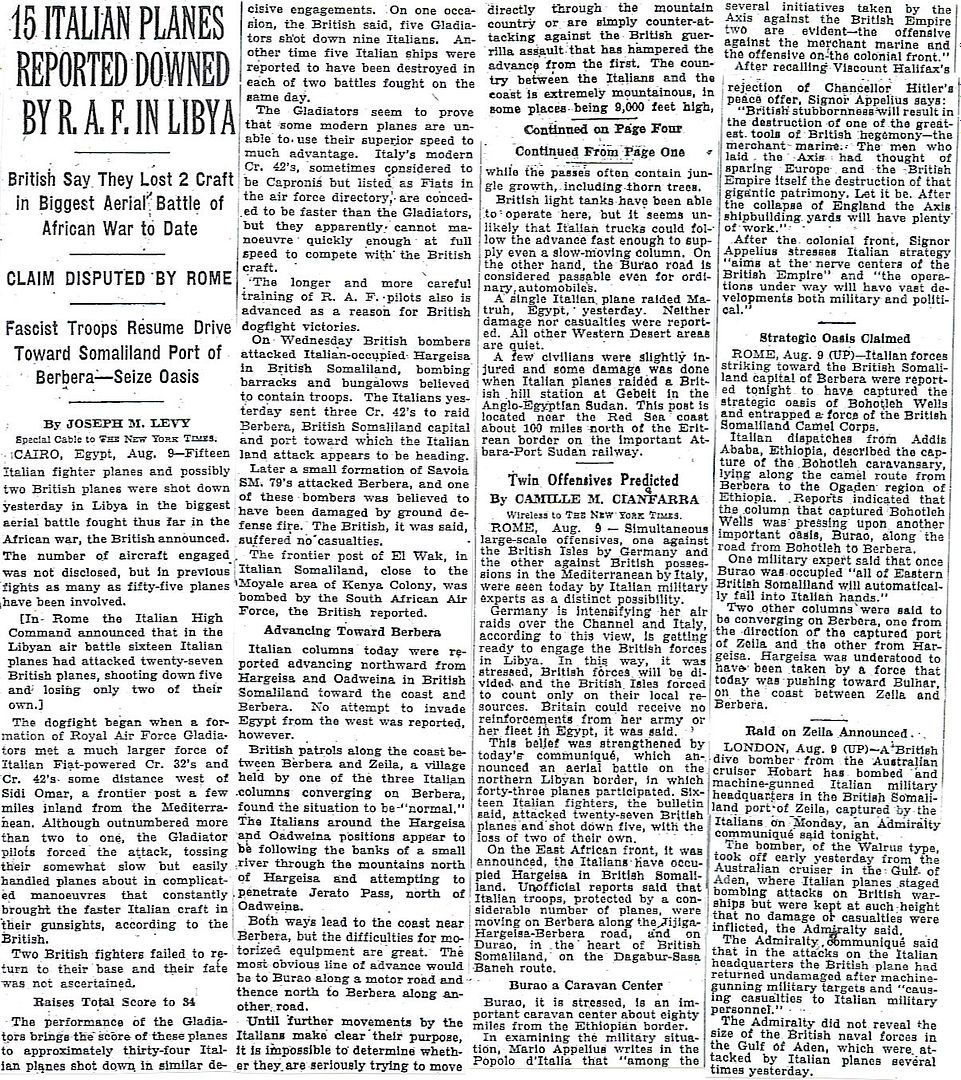
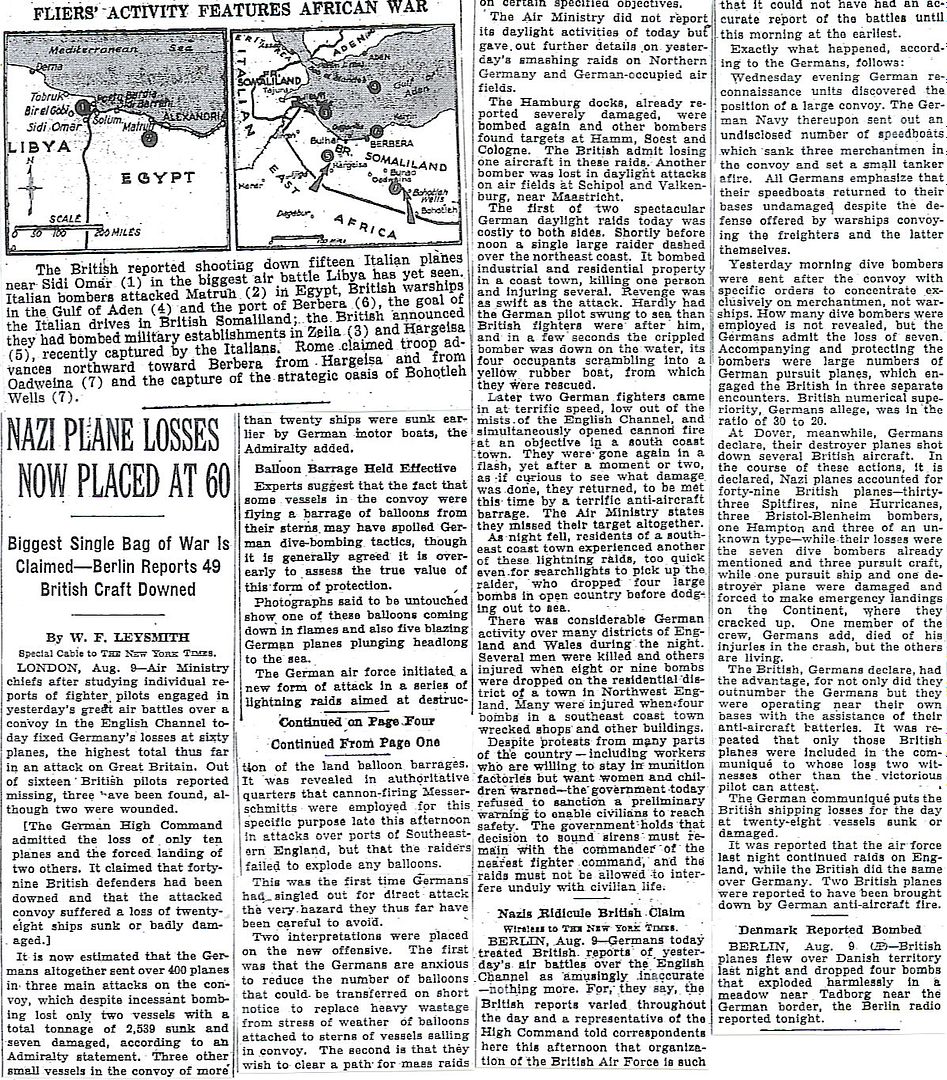
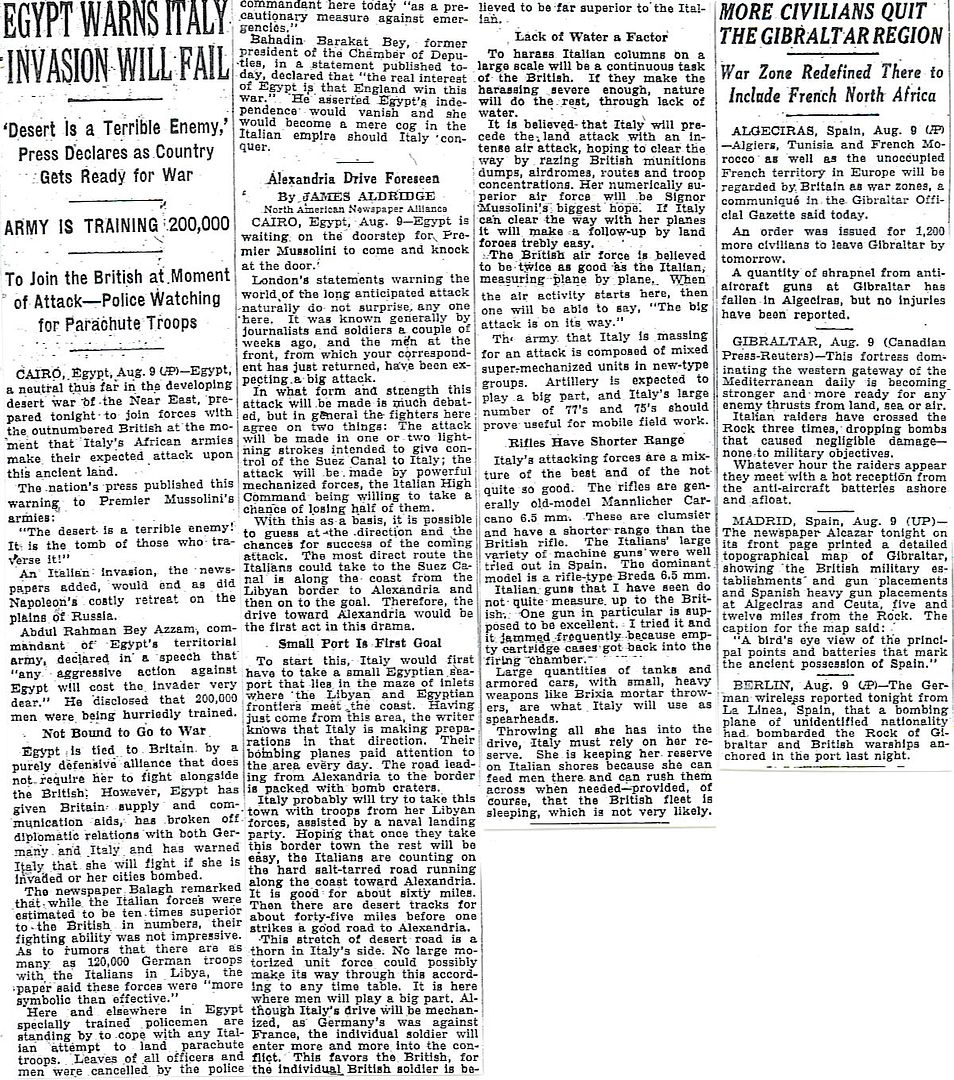
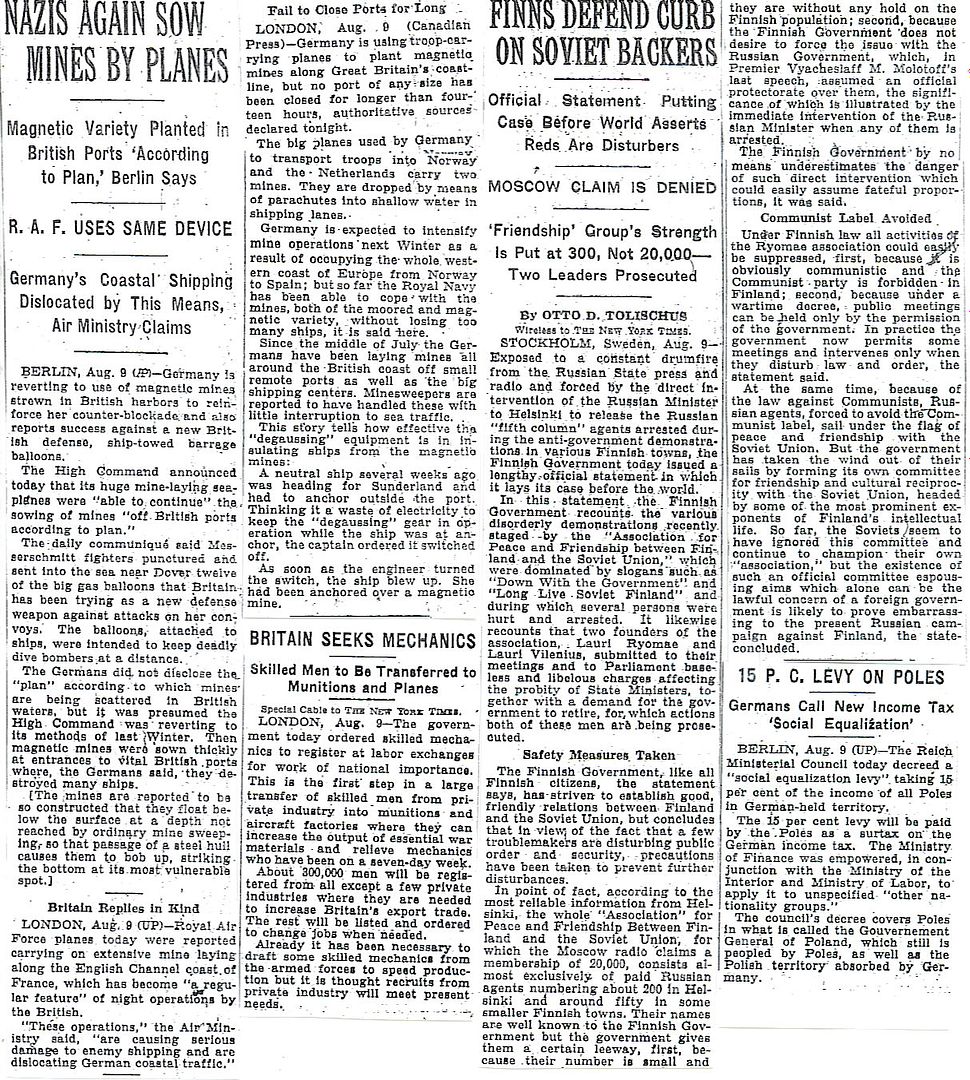
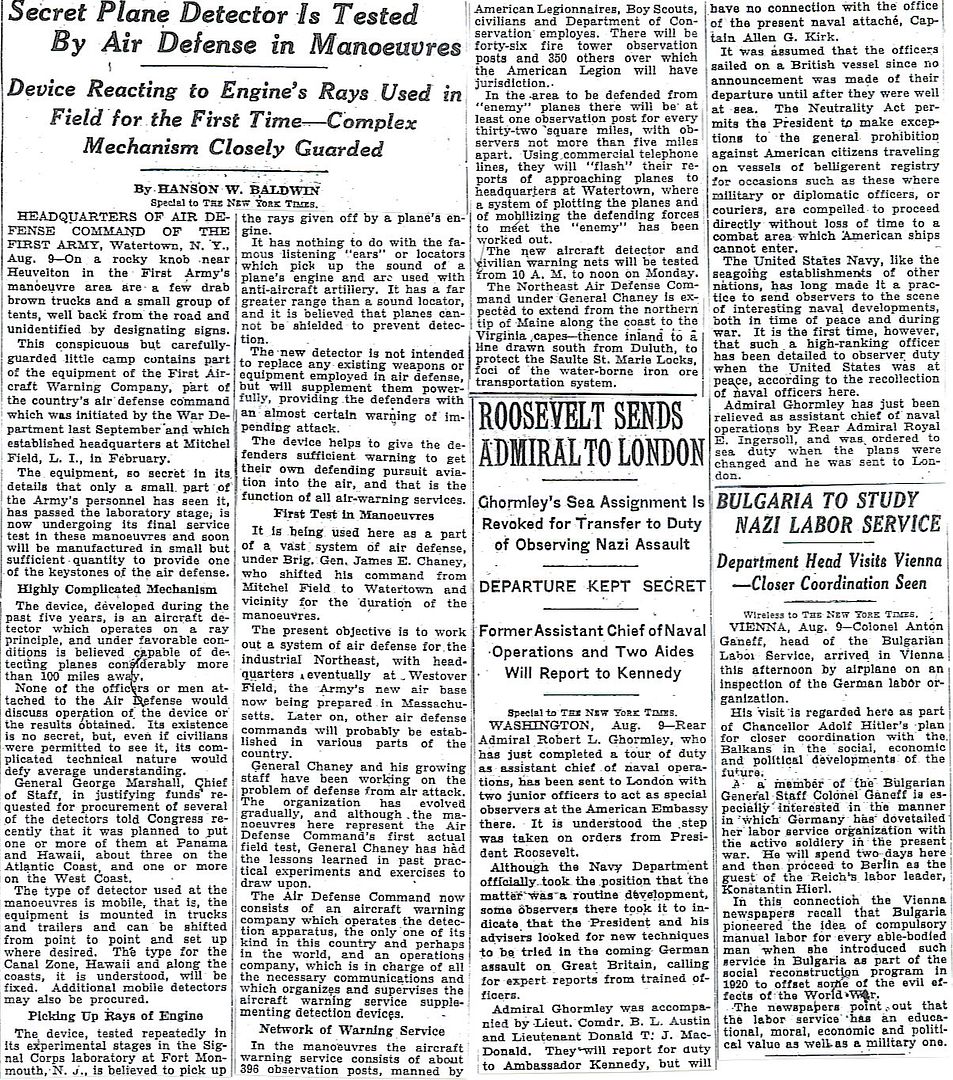
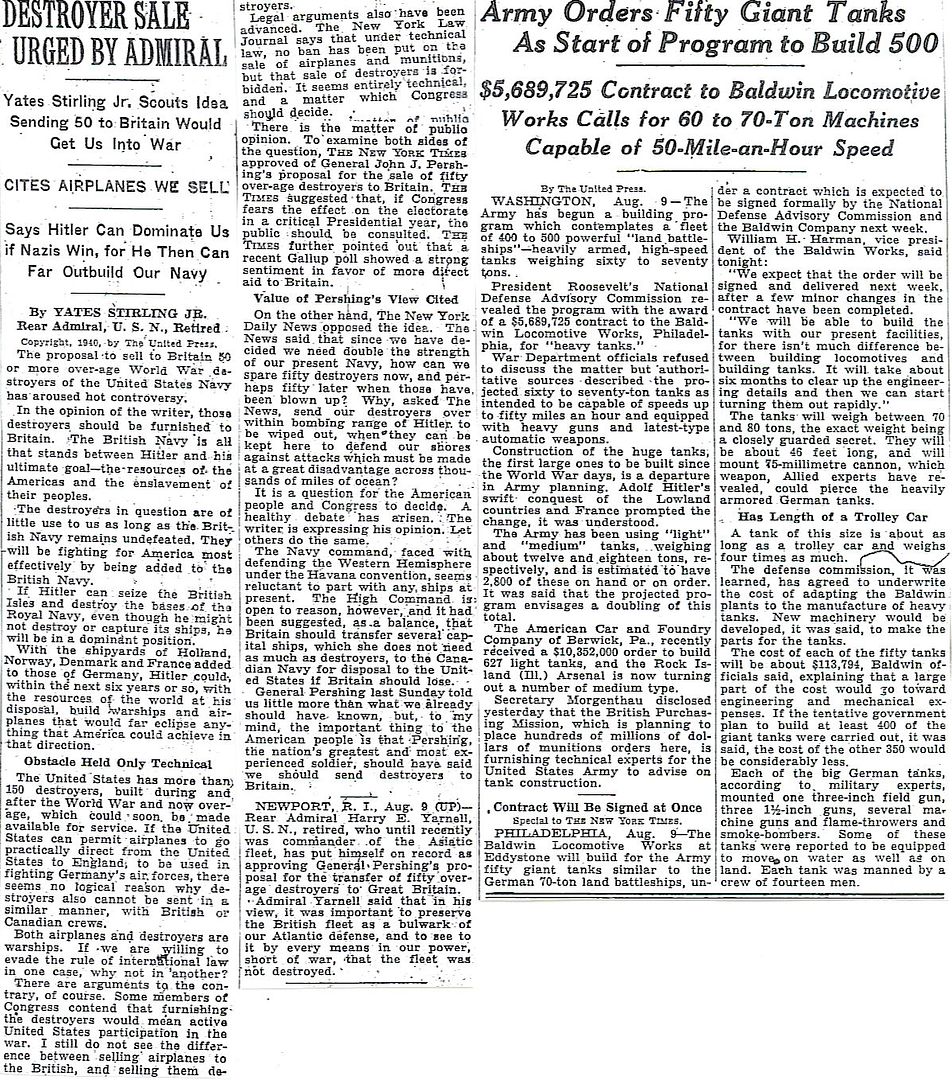
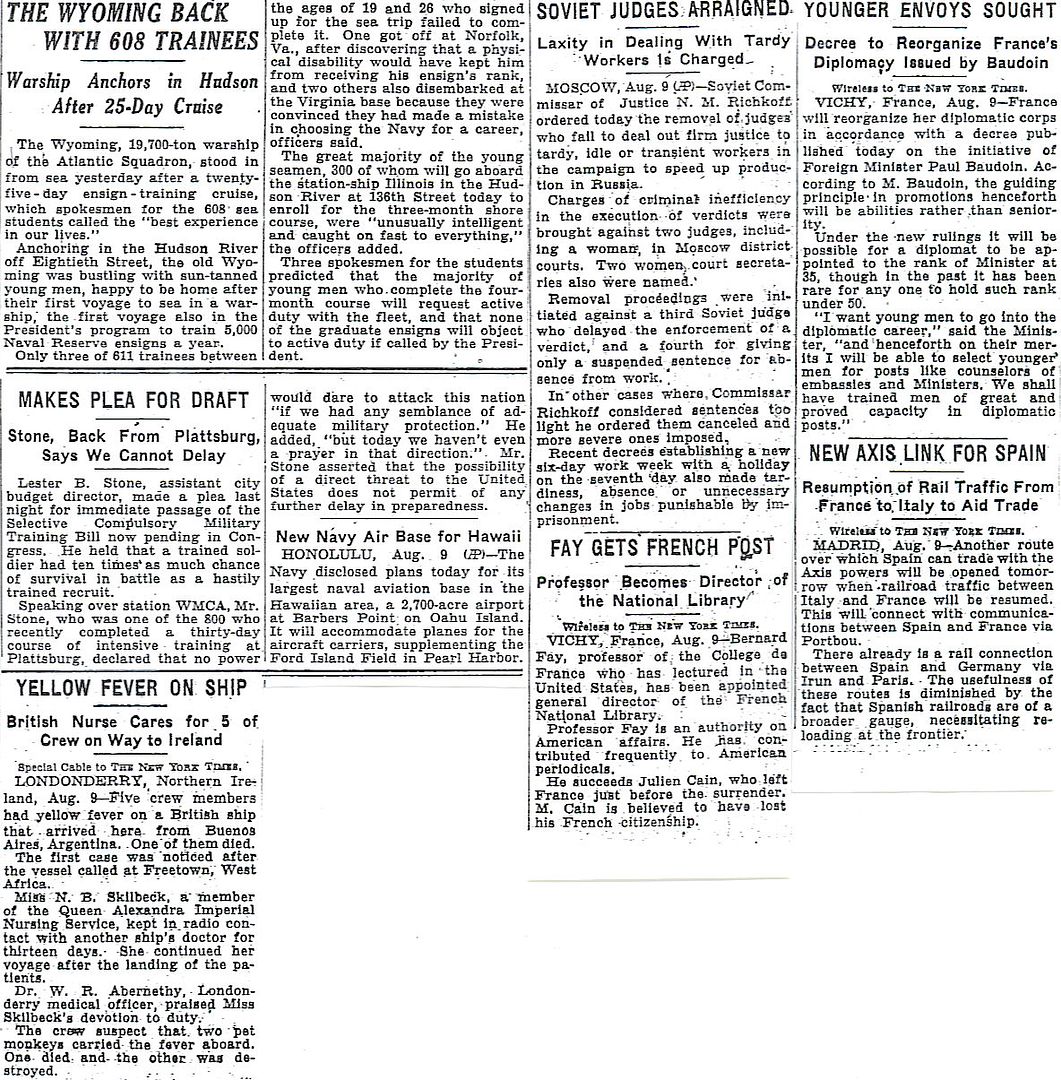
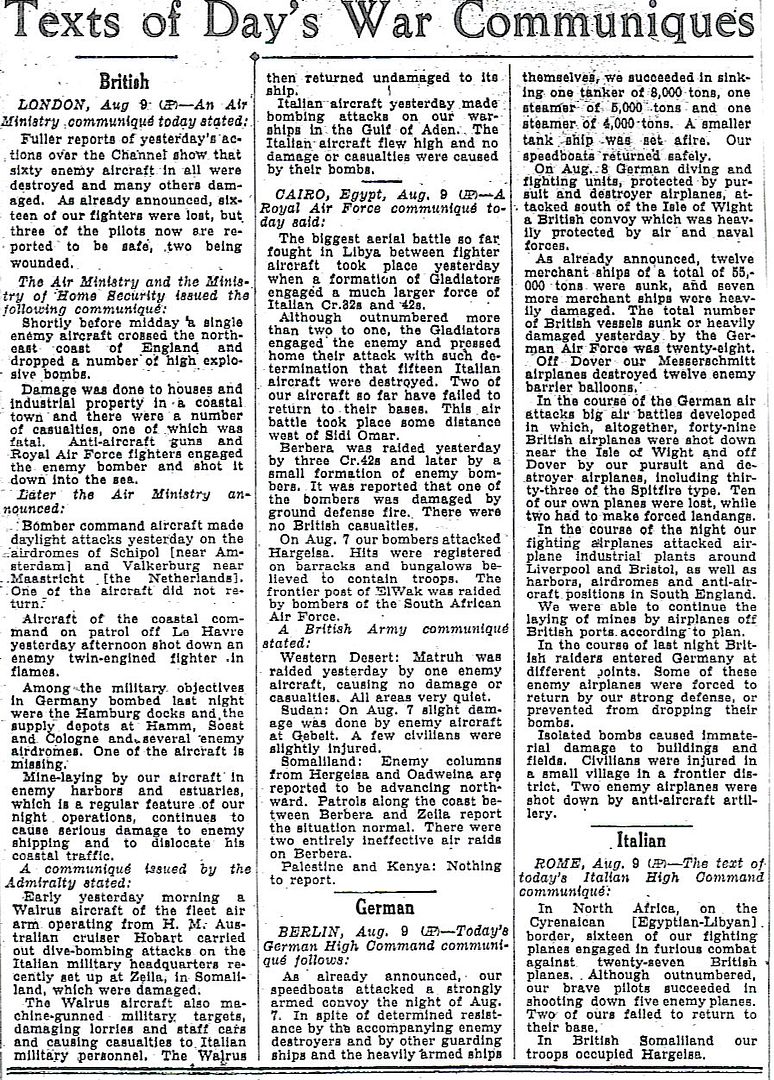
During Captain Henry’s August visit to England he was escorted by this General Tillet, an army Historian (whose background sounds a lot like that of B.H. Liddell Hart). The following discussion takes place during a trip to the Isle of Wight to inspect a radar station.
I always assumed that the good guys won at Waterloo. General Tillet explains that there was a large down side to Wellington’s victory. I would be interested in hearing from classmates who know about the Napoleonic wars as to the soundness of Tillet’s position.
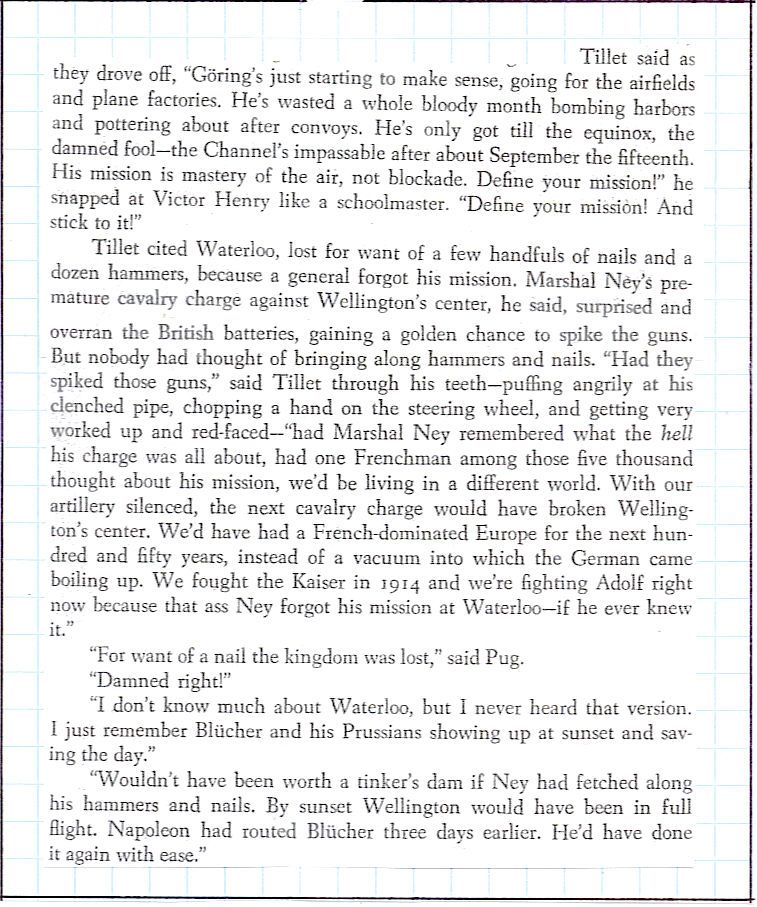
Herman Wouk, The Winds of War
* Those familiar with Herman Wouk’s The Winds of War know that President Roosevelt sent another emissary to observe in England at this time, but it didn’t make the papers. And Captain Henry didn’t mess around with Ambassador Joe Kennedy either. He went straight to 10 Downing Street and conferred with a high level former navy person on the subject of landing craft and other important matters.
For an excerpt from this episode of the book see reply #4 above.
http://www.onwar.com/chrono/1940/aug40/f10aug40.htm
British armor sent to Middle East
Saturday, August 10, 1940 www.onwar.com
In London... The decision is taken to send a large part of the country’s total stock of tanks out to the Middle East although there is the threat of a German invasion. Churchill takes much of the credit for this brave decision which, although not his idea, is necessarily carried out on his instructions.
In the English Channel... There are German attacks on shipping.
http://homepage.ntlworld.com/andrew.etherington/month/thismonth/10.htm
August 10th, 1940
UNITED KINGDOM: RAF Bomber Command: 4 Group (Whitley). Bombing - industrial targets at Frankfurt-am-Main.
58 Sqn. Ten aircraft. Two returned early, four bombed primary, two bombed alternatives. One crashed at Hemswell on return.
RAF Fighter Command: Weather, cloud and rain. Little Luftwaffe activity, no aircraft losses.
Some activity in the Channel and Bf110 pilots of Erpro 210 attempt a surprise evening strike on Norwich. A lone undetected Do 17 put 11 HEs close to RAF West Malling despite 501 Squadron’s attempts to stop it.
During the night serious damage was done to the Llandore GWR (Great Western Railway) viaduct near Swansea where a direct hit on a shelter killed four.
Bombs fall for the first time on Abergavenny, Rochester and Wallasey along with heavy raids on Swansea and Weymouth.
Submarine HMS P 222 laid down.
Destroyer HMS Holderness commissioned. (Dave Shirlaw)
RAF Coastal Command: 608 Sqn. carries out its first operation with its new Blackburn Botha general reconnaissance aircraft.
Despite the threat of invasion, Churchill decides to send three regiments of tanks (about 150) to North Africa.
FRANCE: VICHY FRANCE: Laval offers Germany 200 pilots to help fight the Battle of Britain.
GERMANY: U-56 sank AMC HMS Transylvania.
U-94 commissioned.
U-132 and U-655 laid down.
U-143 launched. (Dave Shirlaw)
AUSTRIA: Vienna: Baldur von Schirach becomes Gauleiter of Vienna; Artur Axmann will take over as Reich youth leader.
ROMANIA: Anti-Semitic legislation is passed.
AUSTRALIA: Minesweeper HMAS Lismore launched. (Dave Shirlaw)
PACIFIC OCEAN: The Japanese naval blockade of the coast of China is extended to South China. (Jack McKillop)
CANADA: Corvette HMCS Spikenard launched Lauzon Province of Quebec. (Dave Shirlaw)
U.S.A.: The motion picture “The Return of Frank James” is released. This western, directed by Fritz Lang, stars Henry Fonda, Gene Tierney (her film debut), Jackie Cooper, Henry Hull, John Caradine and Donald Meek. The plot has Frank James (Fonda) seeking revenge against the men who killed his brother Jesse. (Jack McKillop)
ATLANTIC OCEAN: Armed Merchant Cruiser HMS Transylvania of the Northern Patrol is lost to U-56 to the north of Ireland 40 miles off Malin Head at 55 50N 08 03W. (Alex Gordon)(108)
http://worldwar2daybyday.blogspot.com/
Day 345 August 10, 1940
Battle of Britain Day 32. Göring’s planned offensive against RAF airfields is cancelled due to the weather. Clouds, squalls and thunder storms again preclude much flying. Luftwaffe mounts reconnaissance patrols and sporadic attacks on isolated trawlers and merchant ships. Overnight, Germans drop mines at several points on the coast of Britain. No aircraft are lost by either side.
In mid-Atlantic, 300 miles Southwest of the Azores, German armed merchant cruiser Widder stops Finnish barque Killoran. The steel-hulled 3 mast sailing ship built in 1900 is carrying a British-owned cargo of 2500 tons of maize & 500 tons of sugar from Buenos Aires to Las Palmas. Although most of Widder’s crew is against sinking the old sailing ship, Widder’s surgeon wants a dramatic finale for the Nazi propaganda film of the voyage he is making. He persuades Captain Ruckteschell to blow up Killoran with all sails still set, after taking off Killoran’s 18 crew. http://www.portcities.org.uk/london/server/show/ConGalleryCollection.18/Gustaf-Erikson-and-his-ships.html
British troopship SS Neuralia leaves Gibraltar, escorted by destroyer HMS Gallant, with 2000 civilian evacuees bound for the Portuguese island of Madeira 600 miles West in the Atlantic. http://www.merchantnavyofficers.com/Troopships.html
Just off the North coast of Scotland, Dutch MV Albula and American steamer Crescent City collide in convoy OA-196. MV Albula sinks after the entire crew is taken off by British destroyer HMS Jaguar.
At 1.00 AM, 20 miles North of Ireland, British armed merchant cruiser HMS Transylvania is hit with U-56’s last torpedo but does not sink (36 lives lost). Destroyer HMS Ashanti and several trawlers rescue 300 survivors before Transylvania is taken in tow but later sinks. http://www.uboat.net/allies/merchants/ships/457.html
Date: 10 August 1940

Enemy action by day
There was little activity; spasmodic raids were made off the South West, South East and East Coasts searching for shipping and a trawler was attacked of Lowestoft. Fighters were sent to intercept several of these shipping reconnaissances but the weather was favourable for evasion and as far as is known, only in one case was contact made.
South and South West
In the early morning, a raid reported a convoy at Swanage; the raid then turned and faded south of Shoreham. There were reports of machine-gunning off trawlers near Beachy Head and a little later, two further raids appeared in this area.
At 0730 hours, one raid crossed the coast at Pevensey and attacked the aerodrome at West Malling where AA guns went into action. One raid of three aircraft crossed the coast at Shoreham and re-crossed going south east over Dungeness.
Later, it was reported that an enemy aircraft had been active over a ship 40 miles south west of Pembroke. Enemy patrols were active from the Lizard to Dungeness, evidently searching for shipping.
East Coast
During the morning, attacks were reported on trawlers off the Norfolk coast.
Later, several raids appeared off the Yorkshire and Norfolk coasts and one enemy aircraft attacked a trawler off Lowestoft.
During the afternoon, several shipping reconnaissances were made off Yarmouth and Cromer and a Dornier was active over South Norwich. This raider was intercepted by a Spitfire which fired all its ammunition into it but the enemy aircraft turned out to sea and escaped.
By night
Eight raids - presumably minelaying - were plotted between North Foreland and Orfordness; some of these raids were off Harwich and others well into the Thames Estuary.
A liner is reported to have been attacked approximately 20 miles west of Achill Head (County Mayo).
Four raids approached the Bristol Channel and were probably minelaying as were also raids off the coast of Plymouth.
Four raids approached the coast between Flamborough Head and the Humber and activity was reported south-west of Catfoss and south of Flamborough Head. One raid was reported north east of the Orkneys and one from south of Wick to near Rosehearty.

________________________________________
Statistics
Fighter Command Serviceable Aircraft as at 0900 hours, 10 August 1940
Casualties:
Patrols:
Balloons:
Aerodromes:
Organisation:
Air Intelligence Reports
Home Security Reports
Clever! The New York Times was actually balanced in 1940. This history is fascinating. The real story going on behind the scenes, however, is FDR bringing Communists/Marxists into government and the halls of power. We are today seeing the effects.
Willkie may have been clever but he was pretty much a Roosevelt shill even while running against him. Soon after the election, the produced the horribly statist book, One World.
Also, I like the picture of Teddy Roosevelt Jr. by the M2A2 light tank. He will play some significant rolls here in the future.
Here's a connection to today's movie review thread: Henry Fonda, who portrays Frank James in the second feature, will, twenty plus years hence, portray Teddy Roosevelt Jr. in "The Longest Day."
Did you catch Baldwin’s article from the upstate front about the top secret airplane detector? I would like to learn more about “engine rays.” If they had that technology available for use in Hawaii there would be no need to worry about an enemy sneaking up on them undetected.
Hate to say I'm a little slow, but in all this time I never noticed the major factor of today's political reporting which seems entirely absent in 1940:
Where in 1940 do we see any of what we today call "the politics of personal destruction"? I don't see it, anywhere.
There are no personal stories on President Roosevelt, or anyone else, for that matter, certainly not of the salacious types which dominate today's "news." Any thoughts?
All of these special missions from FDR were daggers aimed at US Ambassador Joseph Kennedy -- who was at best defeatist and at worst pro-Nazi.
Having appointed Kennedy before the war started, Roosevelt was growing to increasingly dislike his Ambassador -- and the antagonism was mutual. Eventually, Kennedy would blame FDR personally for the death of his eldest son.
Good prediction that Kennedy will not stay on the job in London much longer.
FWIW, my opinion is Kennedy's feelings on the war, like those of some other Americans of Irish descent (Pat Buchanan comes to mind), were colored by an intense desire to see the arrogant John Bull get a proper spanking -- which the Nazis seemed now on the verge of doing.
Now my memory really is failing me -- didn't FDR campaign-promise to close Guantanamo because of some allegedly unsavory activities there?
Or was that some other Presidential Candidate? I must be getting these Democrat candidates so confused -- can't tell one from the other any more... ;-)
What do you think, pretty good idea to keep it open, at least for "now"? ;-)
Any idea what these might be?
They sound like M1 Abrams... but surely, no way. ;-)
I think there is a legitimate place for bottom feeding reporters in Washington. I had an Aunt who I am sure voted the straight Democratic ticket from Roosevelt on. That was a solidly conservative branch of the family and I don't think she would have supported some of the people she did if their ghastly behavior hadn't been considered out of bounds as story material by "sophisticated" journalists. There are too many creeps in office who personally deserve to be politically destroyed. Maybe the bounds of decency were more closely observed in 1940. Back before Judeo-Christian morality became totally uncool.
Disclaimer: Opinions posted on Free Republic are those of the individual posters and do not necessarily represent the opinion of Free Republic or its management. All materials posted herein are protected by copyright law and the exemption for fair use of copyrighted works.